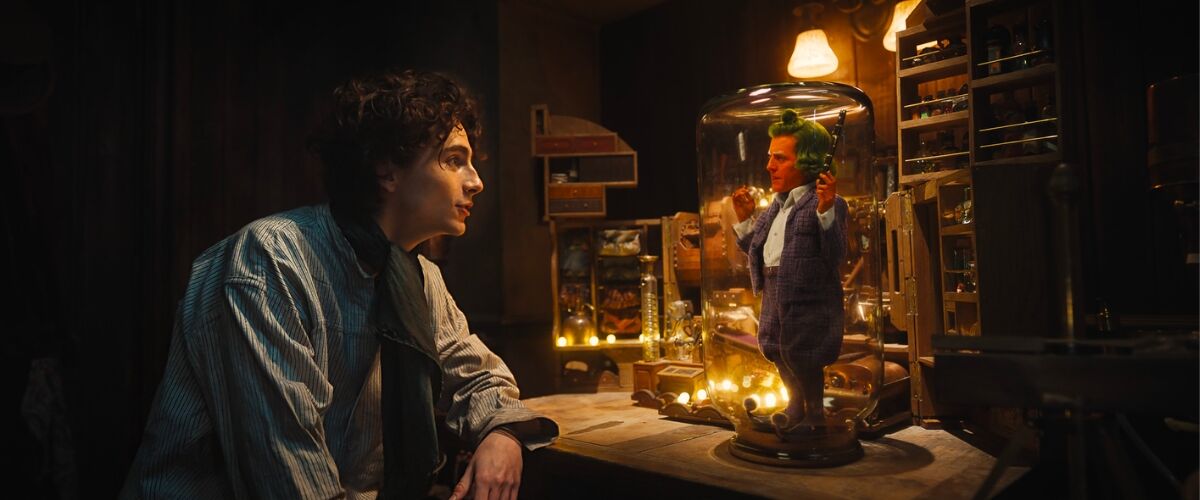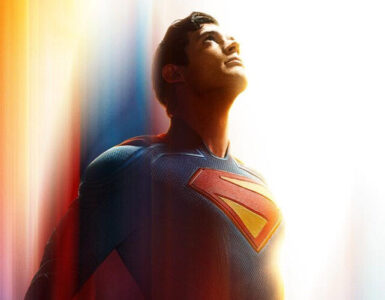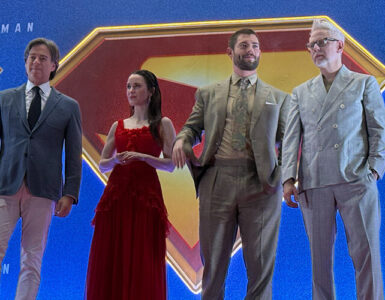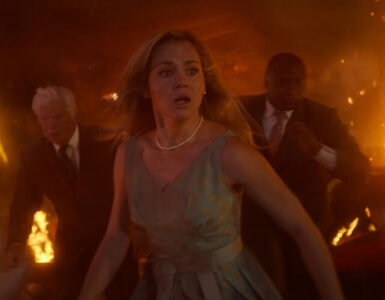This interview has been edited for clarity.
Most actors would take the opportunity to gush about their new role in a highly anticipated film, and even those who feel otherwise would wait a few months before lamenting about their bad experience with the film, but not British actor Hugh Grant.
Renowned for his charismatic roles and most recently seen as the villain in Dungeons & Dragons: Honor Among Thieves, the 63-year-old had very little to effuse about his turn as an Oompa Lumpa in Wonka, a prequel to and companion piece to the iconic 1971 film, Willy Wonka & the Chocolate Factory, itself the first Hollywood adaptation of Roald Dahl’s 1964 literary classic, Charlie and the Chocolate Factory.
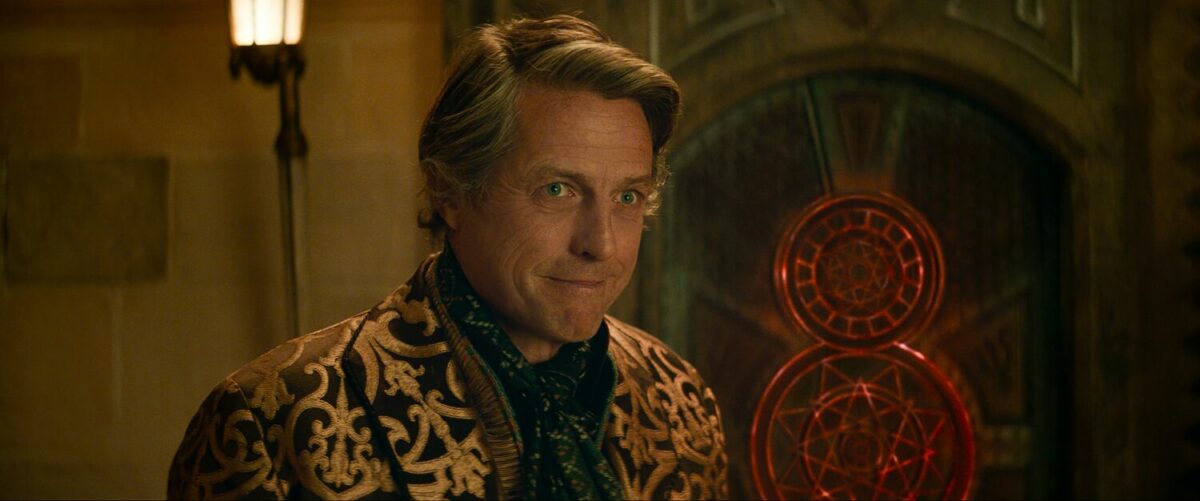
To take on the role of the knee-high character, the 1.8m tall actor had to rely on motion capture and because of the pandemic, spent two years playing the disgraced Oompa Loompa, Lofty.
“You’ve got 16 to 17 different cameras strapped around you. I didn’t know where I was or what was happening. I did my best,” described Grant at the film’s international press conference in London, detailing the challenges of filming, which involved wearing a special suit and having multiple cameras constantly focused on his face.
“And then two months later, can you come and do it again? And this went on for two years. I couldn’t have hated the whole thing more.”
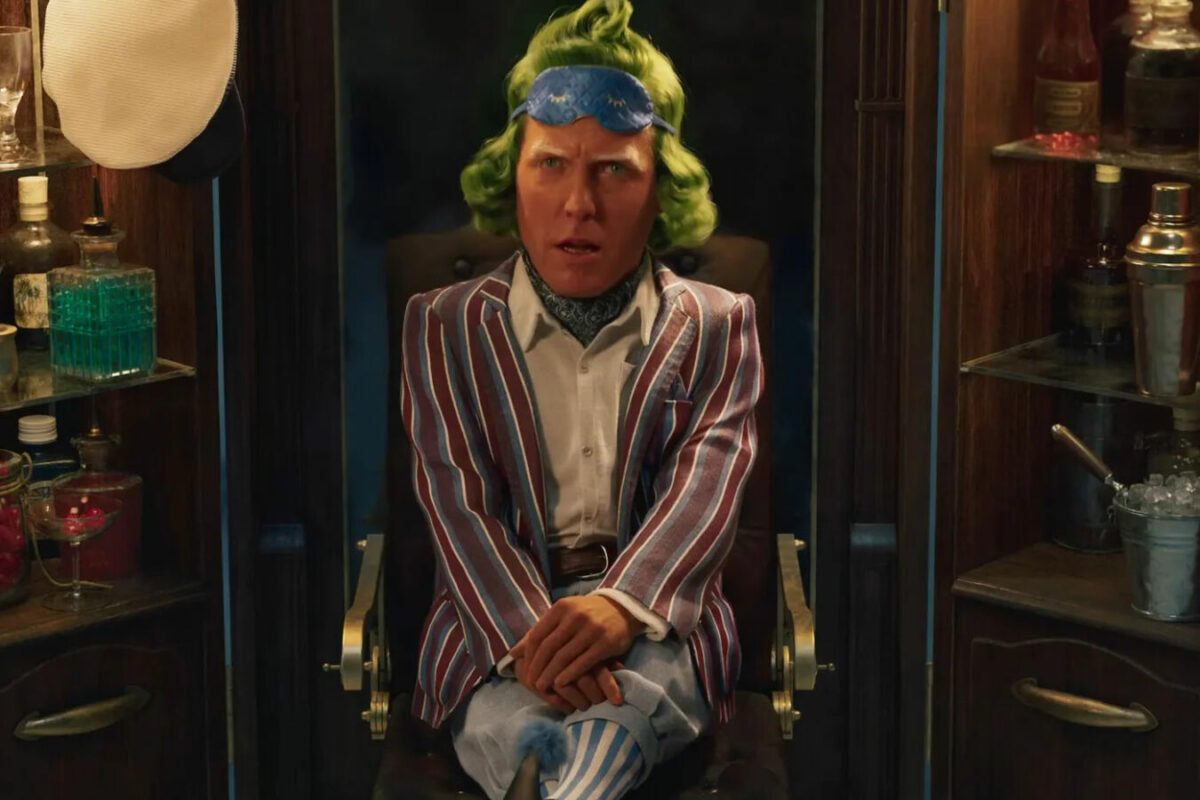
The process of shrinking Grant to Oompa Loompa size, of around 30 inches (76cm) tall, using motion capture technology left him grappling with uncertainty and discomfort, as he humorously admitted that his physical acting might have been subpar, as he was unsure whether to perform with his whole body or just his face.
“Am I supposed to be acting with my body or not? And I never got a satisfactory answer. Frankly, what I did with my body was terrible and has all been replaced by an animator entirely.”
Screenwriter Simon Farnaby echoed Grant’s sentiments, but he also acknowledged his efforts. “He worked hard on that. I remember the first rehearsal we were doing, because it was the movement he did, the awkward pauses.”
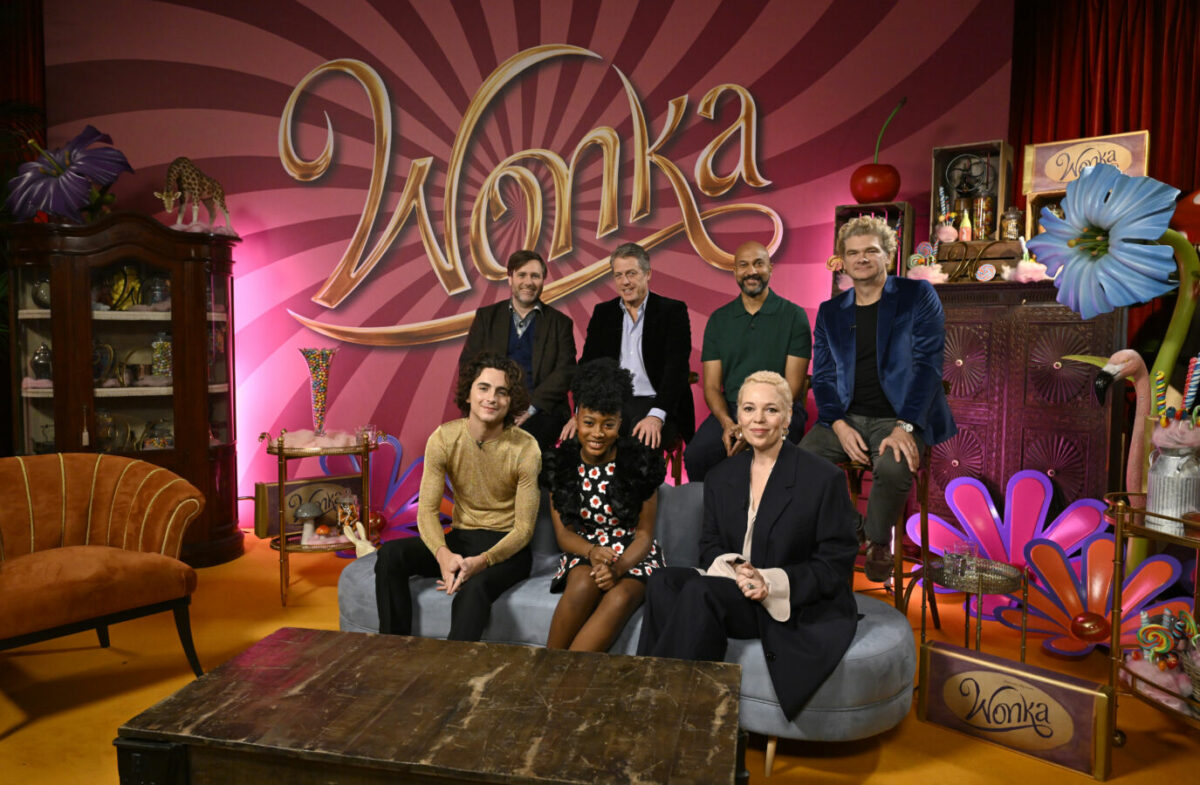
Grant’s role in Wonka, directed by Paul King, sees him reunited with the Paddington 2 filmmaker for another adventure, this time joined by Timothée Chalamet, Calah Lane, Keegan-Michael Key, and Olivia Colman, in a script by Simon Farnaby.
When asked if the final result justified the challenging process, Grant’s response was a nonchalant ‘not really’, to the amusement of his fellow cast members. His struggles extended to the dancing scenes, which he quipped were actually performed by the animator, and not him.
“I still can’t really work out where I end, and where the animators start. It’s very, very confusing.”
Grant’s critique wasn’t limited to his own experience as he also noted the current broader concerns about the pervasive use of CGI in filmmaking, citing a personal anecdote. “As my father said at the premiere of Paddington after he’d watched 25 minutes, ‘Is that a real bear?’ It’s very confusing with CGI.”
That said, the rest of the cast had differing insights about their time in the fantastical land of chocolates.
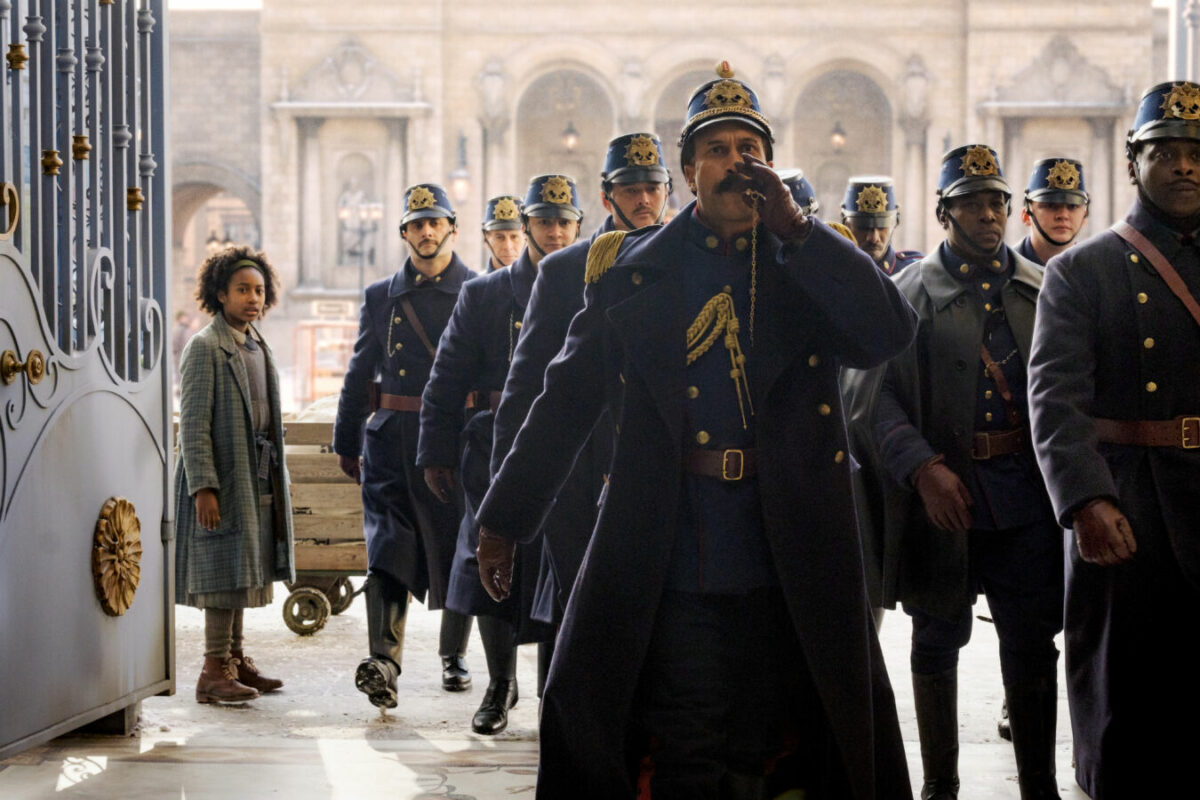
Keegan-Michael Key emphasised the dominance of practical elements on set, and not an over reliance on green screens. “Mostly practical,” he affirmed. “It’s amazing. That Town Square that we have is just absolutely real. And you just turn the corner when you come on set, and how amazing it is for everything to be tactile.”
Olivia Colman chimed in with a humorous revelation about recreating a town that was unnamed in the original book, “Yeah, and you go around the corner and it’s all held together with double-sided sticky tape.” This behind-the-scenes glimpse highlights the fascinating blend of detailed realism and practical set design that brings Wonka’s unique, almost storybook-liked world to life.
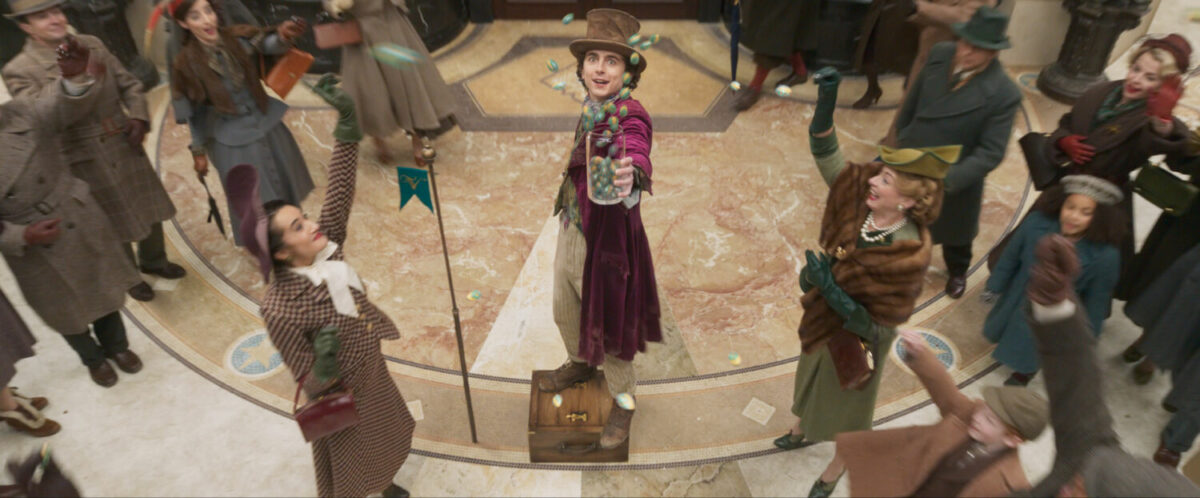
“I think it’s really tough when you try and set something in a sort of storybook world, because it’s not a kind of the most literal location. It’s a European city, somewhere. And it’s the late 40s nominally, but it’s a series of judgment calls,” Paul King explained, “I think about how much you can you can mess with that and try something that’s slightly out of context, because we were trying to capture that same essence as Charlie and the Chocolate Factory. It’s sort of realistic, but it’s kind of Dickensian, and it’s also contemporary.”
The conversation turned to the challenge of reimagining such an iconic and beloved character as Willy Wonka. Timothée Chalamet, portraying a young Willy Wonka, brought a delicate balance to his role, carefully navigating between eccentricity and approachability.
“This film is like a companion piece to the Gene Wilder film, imagining a young Willy Wonka. But when characters are so cherished, people are naturally protective and skeptical,” Chalamet explained, “Yet, the brilliance of Simon and Paul’s script, its cleverness, and the story’s justification make it worthwhile. It’s about experimenting with the role, and finding joy and generosity in the performance. The first few days on set were about learning to let go and embrace the film’s generous tone. This project allowed for a variety of interpretations, avoiding a specific time stamp and drawing from diverse influences.”
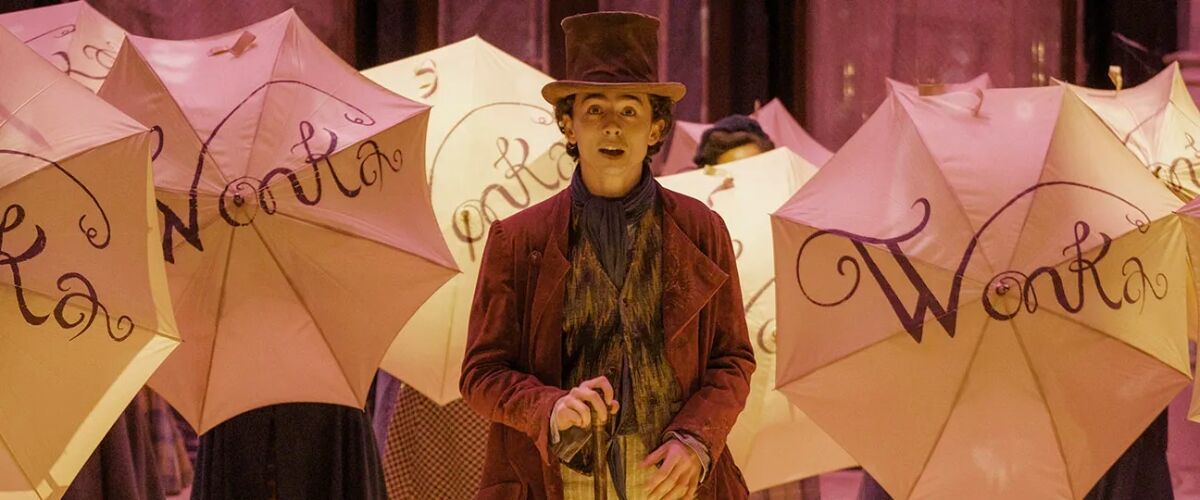
Director King lauded Chalamet’s controlled acting and his ability to fine-tune his performance for the character’s nuanced portrayal. “Timothee is a controlled actor, brilliant at analyzing his performance,” King affirmed, “We’d review tapes, discussing how to strike the right balance for Wonka’s eccentricity without being too intense. It’s a delicate line, and Timothee’s insight into his on-screen portrayal was invaluable. We experimented with numerous variations to find the perfect tone, a process that was truly extraordinary to witness.”
Currently showing in theatres over the holiday season, Wonka is inspired by the iconic lead from Roald Dahl’s Charlie and the Chocolate Factory, offering a fresh take on Willy Wonka’s story. This fantasy musical unveils a younger Willy Wonka (Timothée Chalamet), filled with innovative ideas and cocoa-based dreams, long before becoming the quirky head of the Wonka Chocolate Factory.

